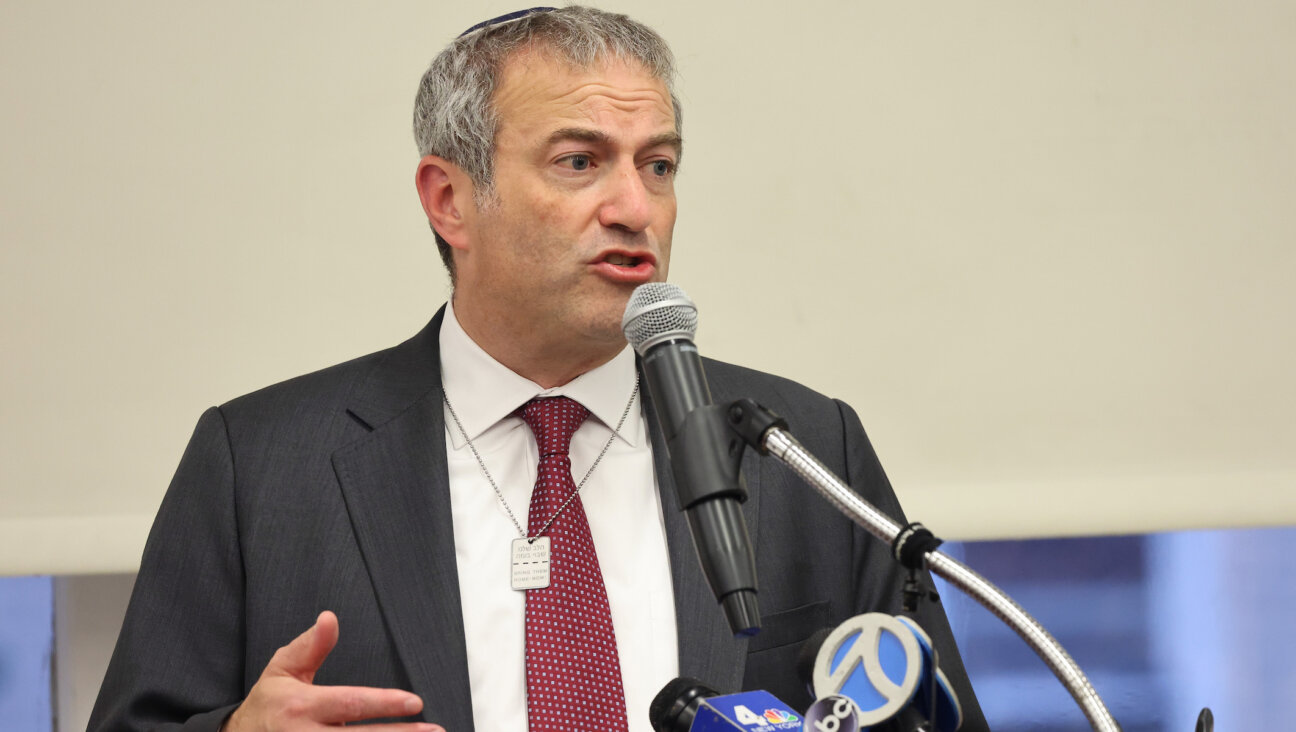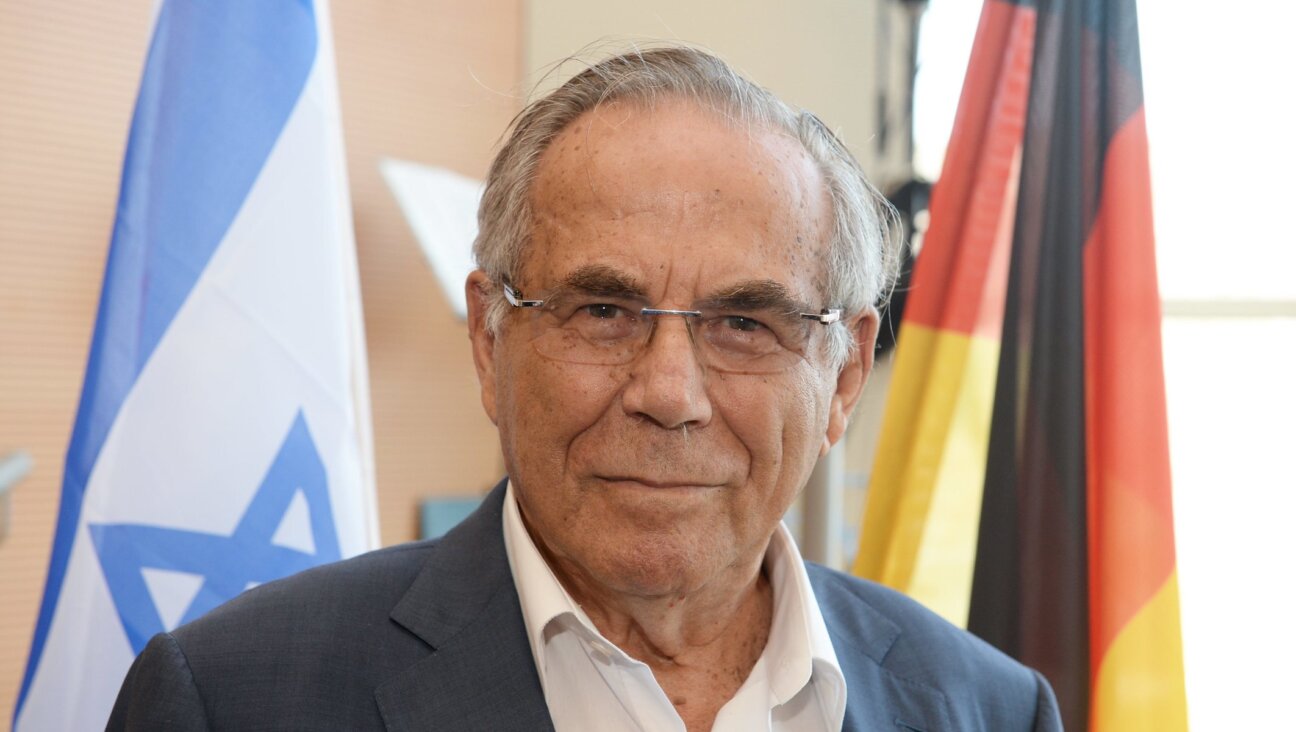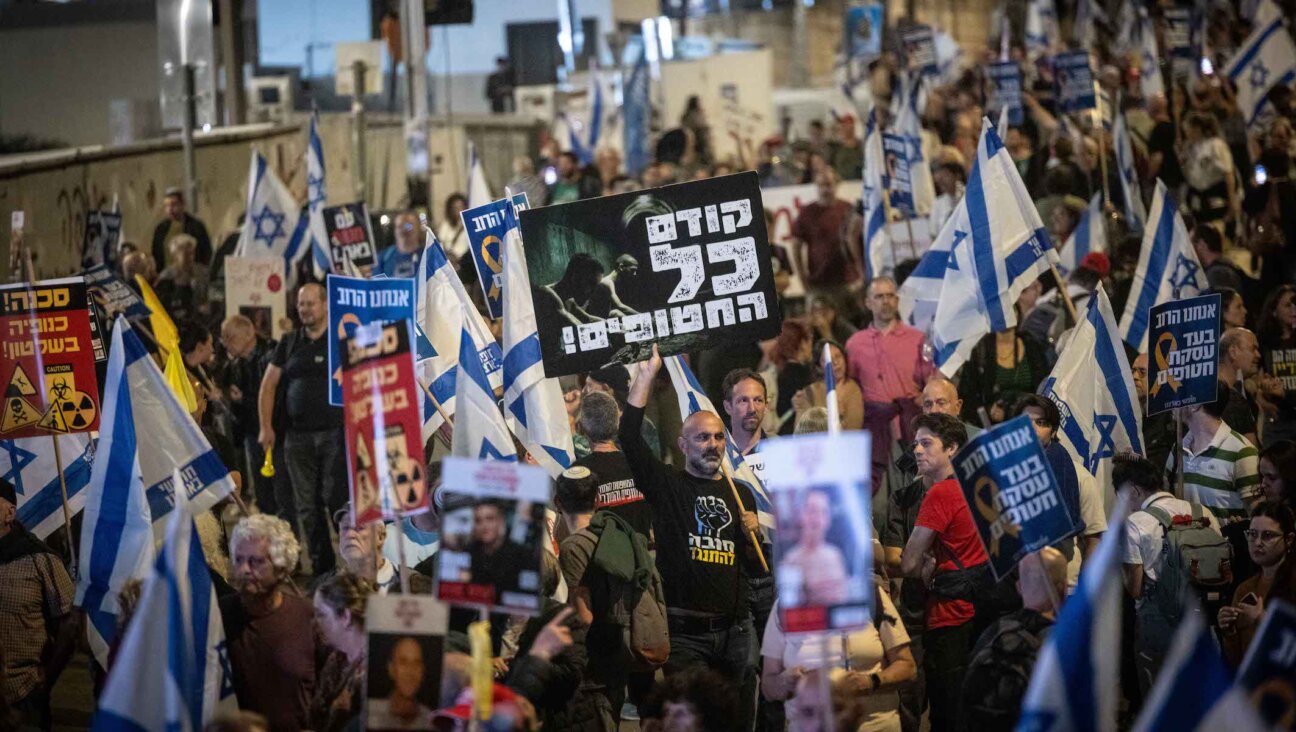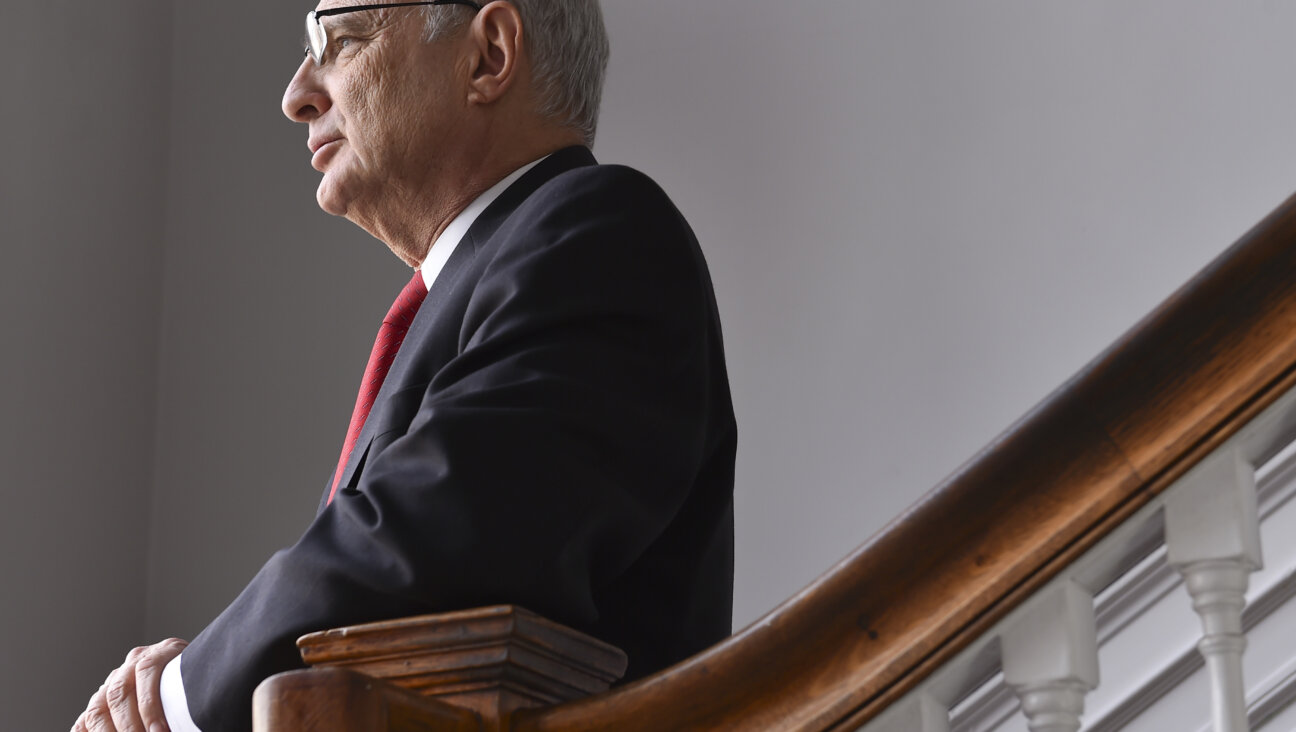Syria Accuses US, France of Arming and Funding ‘Terrorists’

Syrian Foreign Minister Walid Moallem addresses the United Nations General Assembly on October 1, 2012. Image by getty images
Syria’s foreign minister on Monday accused the United States, France, Qatar, Saudi Arabia and Turkey of supporting “terrorism” by funneling arms, money and foreign fighters to rebels seeking to topple President Bashar al-Assad while the U.N. chief decried killings and rights abuses by Assad’s government.
Speaking on the last day of the annual 193-nation U.N. General Assembly, Foreign Minister Walid al-Moualem also accused Libya of backing the rebels and said an arm of the al Qaeda network had taken responsibility for some bomb attacks in Syria.
Moualem said outside calls for Assad to step down amid the 18-month-old conflict were a “blatant interference in the domestic affairs of Syria, and the unity of its people and its sovereignty.”
His speech came three days after countries calling for Assad’s ouster met on the sidelines of the General Assembly but announced steps far short of what the rebels wanted as they press ahead in the bloody civil war.
U.N. Secretary-General Ban Ki-moon met with Moualem earlier on Monday and “raised in the strongest terms the continued killings, massive destruction, human rights abuses, and aerial and artillery attacks committed by the government,” Ban’s spokesman said in a statement.
“He stressed that it was the Syrian people who were being killed every day, and appealed to the Government of Syria to show compassion to its own people,” the spokesman said.
Ban raised the growing humanitarian crisis inside Syria, which was also spilling over to neighboring countries, the spokesman added. The United Nations said about 294,000 refugees from Syria had fled into Jordan, Iraq, Lebanon and Turkey.
More than 30,000 people have been killed, according to opposition activists, and there are fears the civil war could destabilize the wider Middle East.
Moualem said that Qatar, Saudi Arabia, Turkey, the United States and France “clearly induce and support terrorism in Syria with money, weapons and foreign fighters.”
Qatar, Saudi Arabia and Turkey have denied aiding the rebels. The United States and France have said they are providing “non-lethal” support and not weapons.
“Under the pretext of humanitarian intervention, these countries interfere in the domestic affairs of states, and impose unilateral economic sanctions that lack the moral and legal basis,” Moualem said.
“And under the pretext of concepts such as the ‘Responsibility to Protect,’ drums of war are beaten, and sedition and unrest are spreading and damaging the structure of national societies,” he said.
Moualem was referring to a concept about governments’ responsibility to protect civilians that has become increasingly popular in Western diplomatic and academic circles. The concept was used to justify last year’s military intervention in Libya that led to the ouster and death of leader Muammar Gaddafi.
“Worst of all is to see permanent members of the Security Council, who launched wars under the pretext of combating terrorism, now support terrorism in my country,” Moualem said.
At a meeting of countries supporting Assad’s ouster held on Friday, the United States and France announced increased support for the Syrian opposition. But the meeting produced no sign that the direct military aid sought by the rebels to create safe havens for civilians was on the way.
Russia, backed by China, repeatedly has vetoed Western- and Arab-backed council resolutions that criticized the Syrian government and threatened it with sanctions, saying the United States, Europe and Gulf Arabs are seeking regime change.
‘FABRICATED’ AID CRISIS
Moualem said the Syrian government welcomed the appointment of international mediator Lakhdar Brahimi and had itself long called for talks to end the conflict, but said the opposition was not interested.
“The success of any international effort requires, in addition to the commitment of the Syrian government, committing the states supporting armed groups in my country, particularly Turkey, Saudi Arabia, Qatar, Libya and others, to stop arming, funding, training and harboring armed terrorist groups, and instead to encourage dialogue and renounce violence,” he said.
Moualem told the U.N. General Assembly that some people had tried to “fabricate a refugee crisis through inciting armed groups to intimidate Syrian civilians in border areas and forcing them to flee into neighboring countries.”
“I appeal from this podium to those Syrian citizens to return to their towns and villages where the state will guarantee their safe return and their precious lives away from inhuman conditions they suffer in these camps,” he said.
Moualem also used his speech to criticize Israel for not joining the nuclear Non-Proliferation Treaty and not allowing the U.N. International Atomic Energy Agency to inspect its facilities.
Syria has not allowed U.N. inspectors to visit a site in its desert Deir al-Zor region that U.S. intelligence reports say was a nascent, North Korean-designed reactor designed to produce plutonium for nuclear weapons before Israel bombed it in 2007.
The Forward is free to read, but it isn’t free to produce

I hope you appreciated this article. Before you go, I’d like to ask you to please support the Forward.
At a time when other newsrooms are closing or cutting back, the Forward has removed its paywall and invested additional resources to report on the ground from Israel and around the U.S. on the impact of the war, rising antisemitism and polarized discourse.
Readers like you make it all possible. We’ve started our Passover Fundraising Drive, and we need 1,800 readers like you to step up to support the Forward by April 21. Members of the Forward board are even matching the first 1,000 gifts, up to $70,000.
This is a great time to support independent Jewish journalism, because every dollar goes twice as far.
— Rachel Fishman Feddersen, Publisher and CEO
2X match on all Passover gifts!
Most Popular
- 1

Film & TV What Gal Gadot has said about the Israeli-Palestinian conflict
- 2

Fast Forward A Palestinian man in Philadelphia served kosher bagels for decades. Then customers found his Facebook profile.
- 3
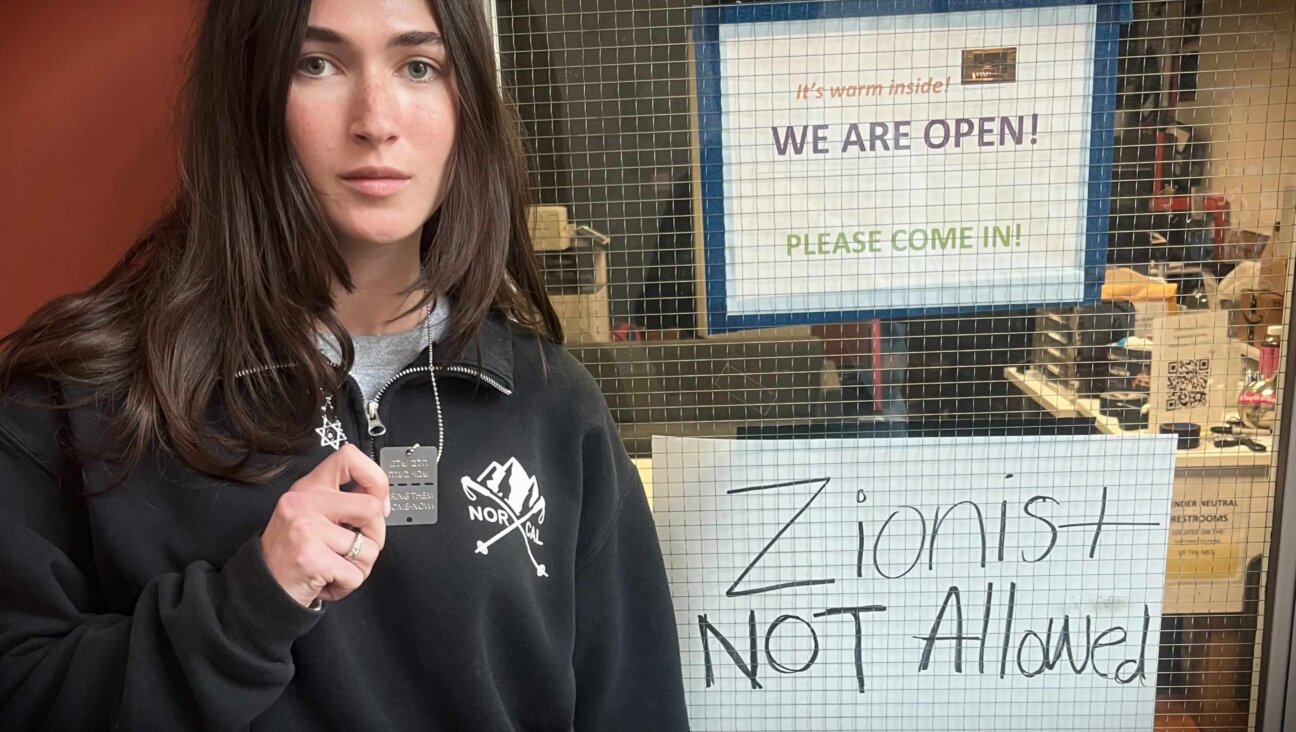
Opinion Is this new documentary giving voice to American Jewish anguish — or simply stoking fear?
- 4
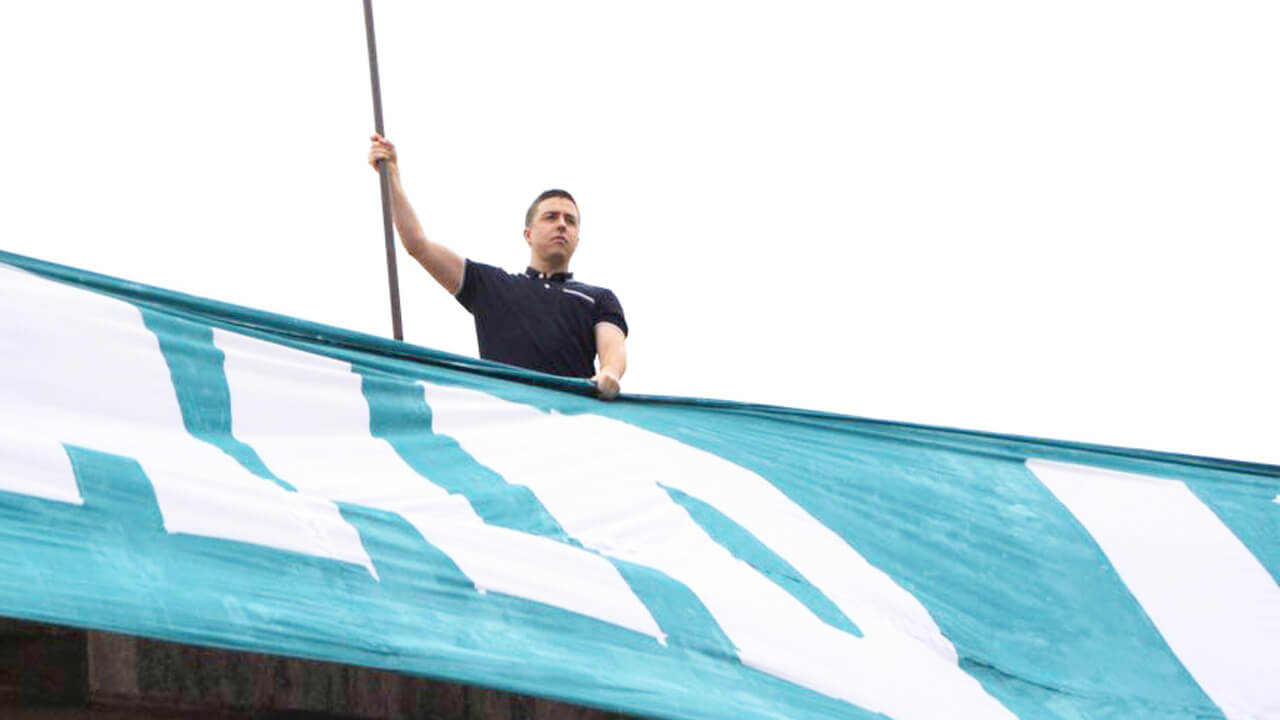
Fast Forward Trump’s antisemitism chief shares ‘Jew card’ post from white supremacist
In Case You Missed It
-
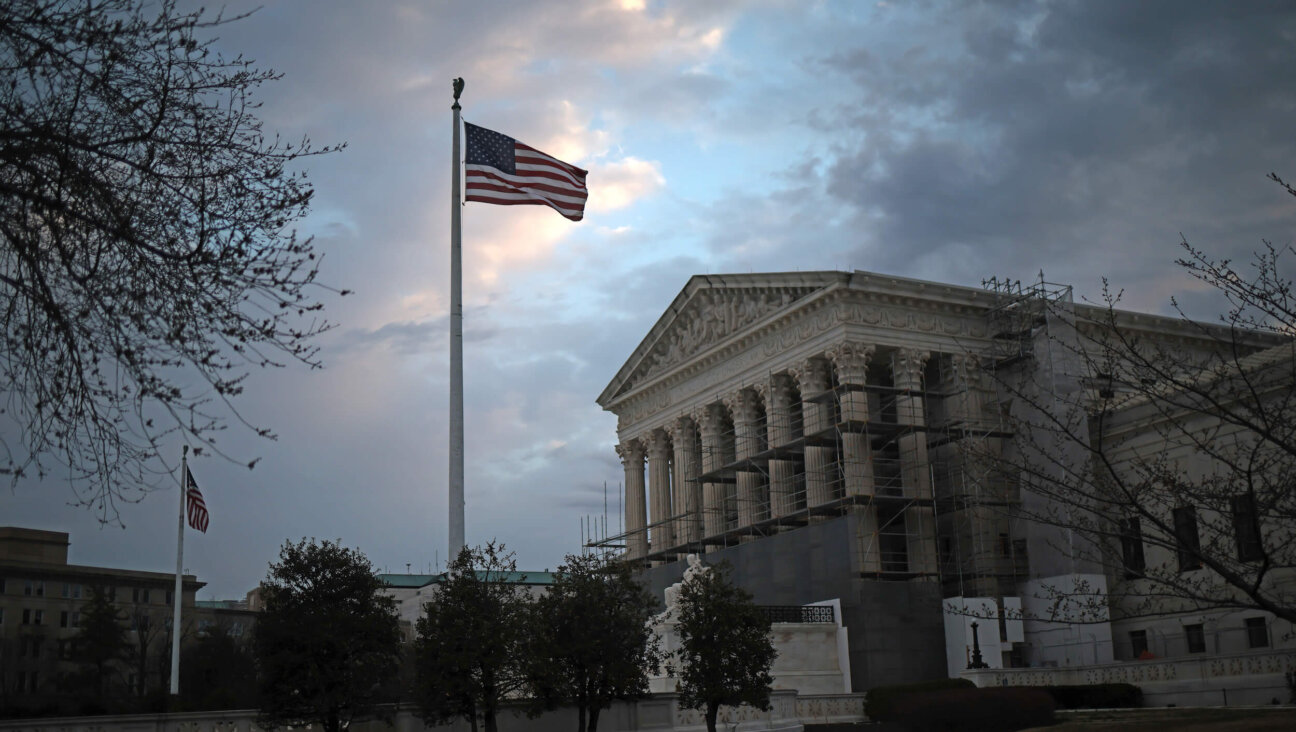
Opinion The Supreme Court is taking on 3 cases that could help reshape American Jewish life
-
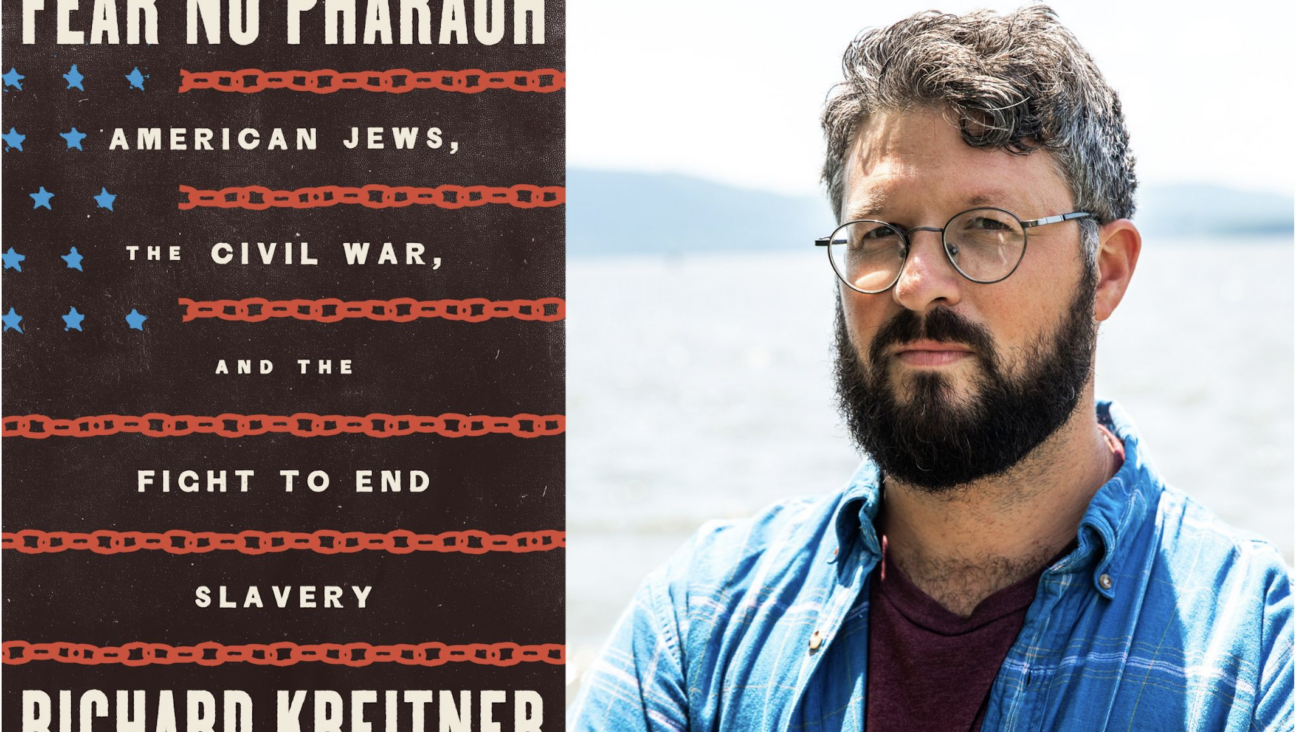
Books Why Jews were like everyone else — only more so — during slavery and the Civil War
-

Culture How two Jewish names — Kohen and Mira — are dividing red and blue states
-

Yiddish לאָמיר פֿאַרגלײַכן צוויי רוסישע נוסחאָות פֿון באַשעוויסעס ראָמאַן „דער שאַרלאַטאַן“Comparing two Russian versions of Bashevis’s novel ‘The Charlatan’
איין איבערזעצונג קלינגט אויף רוסיש גאַנץ נאַטירלעך, און די צווייטע — נישט. וואָס טוט זיך דאָ?
-
Shop the Forward Store
100% of profits support our journalism
Republish This Story
Please read before republishing
We’re happy to make this story available to republish for free, unless it originated with JTA, Haaretz or another publication (as indicated on the article) and as long as you follow our guidelines.
You must comply with the following:
- Credit the Forward
- Retain our pixel
- Preserve our canonical link in Google search
- Add a noindex tag in Google search
See our full guidelines for more information, and this guide for detail about canonical URLs.
To republish, copy the HTML by clicking on the yellow button to the right; it includes our tracking pixel, all paragraph styles and hyperlinks, the author byline and credit to the Forward. It does not include images; to avoid copyright violations, you must add them manually, following our guidelines. Please email us at [email protected], subject line “republish,” with any questions or to let us know what stories you’re picking up.







